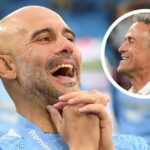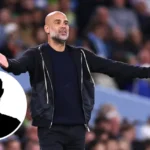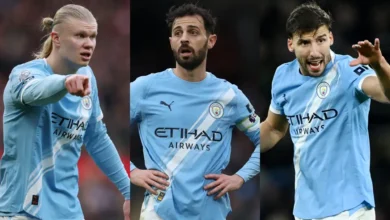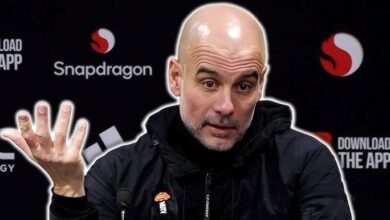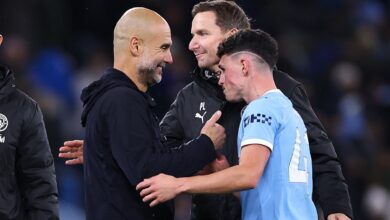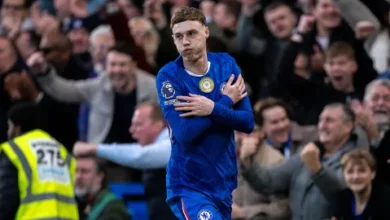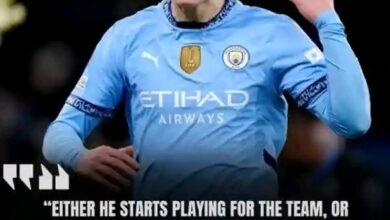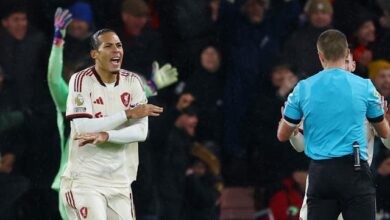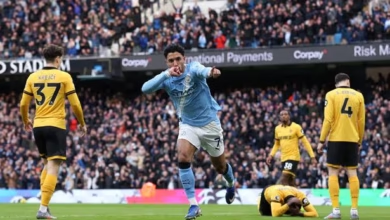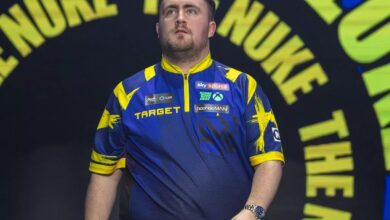Manchester City’s Summer of Reckoning: The Brutal Rebuild That Must Begin Now
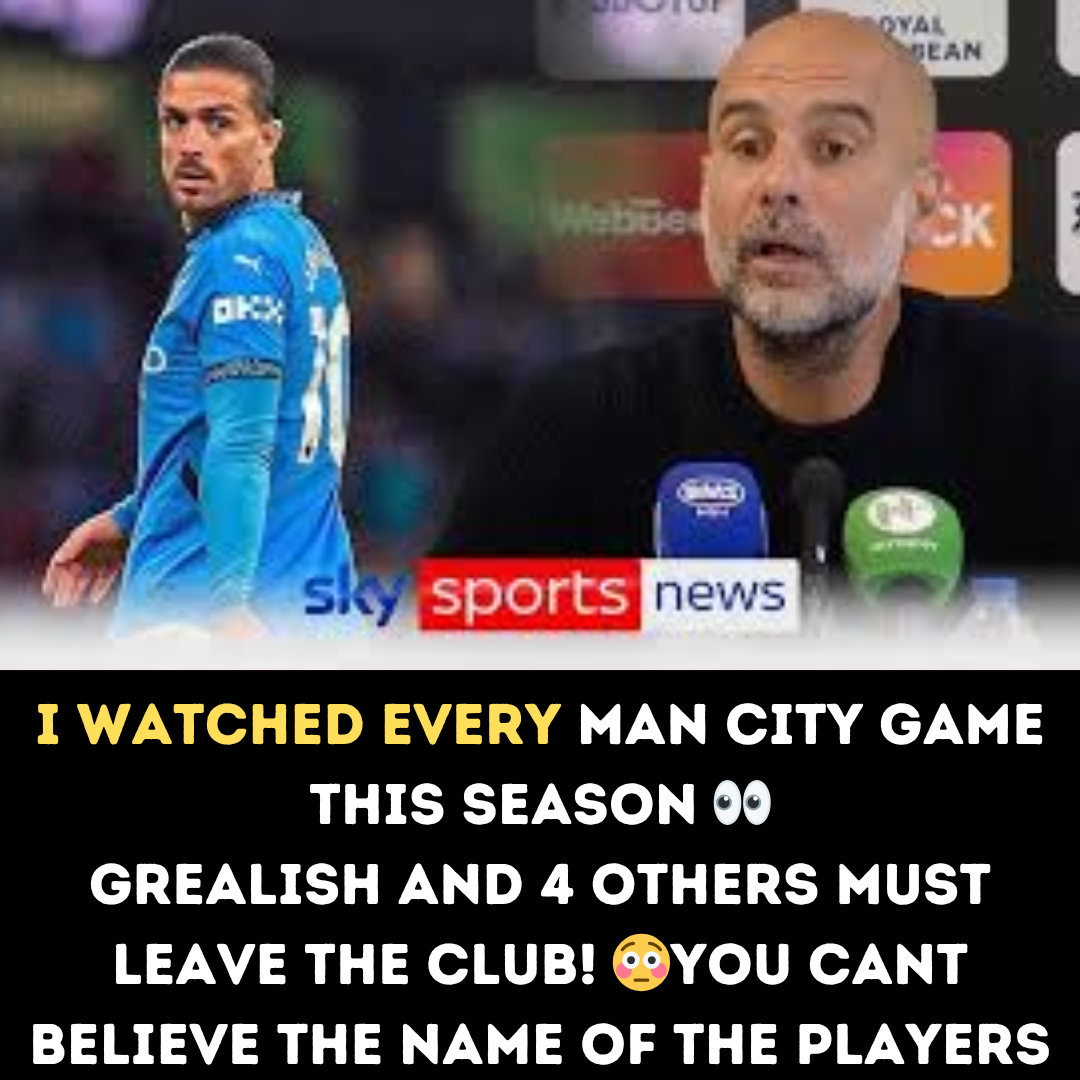
The final whistle has blown on what will undoubtedly be remembered as one of the most deflating seasons in Pep Guardiola’s illustrious Manchester City tenure. After months of grinding through mediocrity, watching performances that ranged from disappointing to downright painful, the curtain has finally fallen on the 2024/2025 campaign. For a club that just one year ago was celebrating a historic treble, parading through Manchester’s streets with three gleaming trophies, this season has served as a stark and unforgiving reminder of how quickly fortunes can change in the beautiful game.
As someone who witnessed every agonizing minute of this campaign – every home game, every away day, every European night, every cup tie – the verdict is clear and uncompromising: it’s time for major surgery. No more excuses. No more second chances. No more clinging to past glories or romantic notions about loyalty. The rebuild that Manchester City desperately needs must begin this summer, and it must be ruthless.
The Harsh Reality of Third Place
Yes, City managed to secure third place in the Premier League. Yes, they scraped into Champions League qualification for next season. But let’s strip away the sugar-coating and confront the brutal truth: this season was a failure by Manchester City’s standards. It was flat when it should have been explosive. It was hesitant when it should have been decisive. It was Manchester City in name only, not in spirit or performance.
The statistics tell part of the story, but they don’t capture the full extent of the malaise that has infected this squad. The dropped points against teams they should have demolished. The lacklustre performances in crucial moments. The sense that this team was going through the motions rather than playing with the intensity and precision that has defined Guardiola’s Manchester City project.
Injuries played their part, certainly. Losing Rodri to that devastating ACL injury in September was like removing the engine from a Formula One car. The Spanish midfielder’s absence exposed just how dependent this team had become on his metronomic passing, his defensive screening, and his ability to control the tempo of matches. Without him, City looked disjointed, vulnerable, and surprisingly ordinary.
But injuries alone cannot explain away this season’s shortcomings. Fatigue from years of relentless winning might have been a factor. The psychological burden of trying to match the impossible standards set by the treble-winning campaign could have weighed heavily on certain players. Yet beneath all these explanations lies a more uncomfortable truth: this squad has become bloated with players who have either peaked, become unreliable, or simply no longer fit into Guardiola’s evolving tactical vision.
The time for sentiment has passed. Pep Guardiola built his reputation on being ruthless when necessary, and this summer he must prove that ruthlessness once again.
Jack Grealish: The £100 Million Ghost
Let’s begin with the most obvious candidate for departure: Jack Grealish. Once the poster boy of English football, the silky-skilled winger who commanded a British record transfer fee of £100 million, Grealish has become a shadow of his former self. The player who danced through Real Madrid’s defence during that magical treble season now looks like a man haunted by expectations he can no longer meet.
This season has been nothing short of tragic for Grealish. When he’s managed to get on the pitch, which has been far too infrequently, he’s looked lost, confused, and devoid of the confidence that once made him unplayable. His last goal came in early November – a damning statistic for a player of his supposed calibre. He hasn’t created a single memorable moment, hasn’t provided that spark of individual brilliance that justified his enormous price tag.
The injuries have been relentless, robbing him of any chance to build rhythm or momentum. But perhaps more damaging has been the gradual erosion of trust from Guardiola. The Spanish coach has quietly phased Grealish out of his plans, rarely turning to him in crucial matches, preferring the direct running of Jeremy Doku or the versatility of Phil Foden. When your manager no longer sees you as a solution to problems, your time is running out.
This isn’t a question of talent – Grealish remains one of the most technically gifted players in English football. His first touch is still sublime, his ability to carry the ball through tight spaces remains impressive, and his vision for a through-ball hasn’t disappeared. But in modern football, availability trumps ability every time. And Jack Grealish has simply not been available – not physically, not mentally, and crucially, not tactically.
The kindest thing Manchester City can do for Grealish is to let him go. He deserves to play regularly, to rebuild his confidence, to rediscover the joy that once made him one of England’s most exciting players. That place is no longer Manchester. If he stays, he’ll continue to decline, becoming increasingly marginalised until he’s forgotten entirely. If he leaves, there’s still time to salvage his career, to find a system that maximises his strengths rather than exposing his weaknesses.
City should bid him farewell with gratitude for his contributions during the treble season, but they must not allow sentiment to cloud their judgment.
Kyle Walker: When Time Catches Up
Kyle Walker’s story is perhaps the most poignant of all the departures that must happen this summer. There was a time – not so long ago – when Walker was the fastest defender in the Premier League, a man who could chase down any winger, who started every big game for Guardiola, who seemed immune to the effects of aging.
But time catches everyone, even those who seem to defy it for years. And in 2024/2025, time finally caught up with Kyle Walker.
The fact that Walker spent the second half of the season on loan at AC Milan tells you everything you need to know about his standing at Manchester City. Guardiola doesn’t loan out leaders. He doesn’t loan out first-choice players. He loans out players who are no longer part of his plans, who need game time elsewhere because they won’t get it at the Etihad.
City’s decision to hand Walker a contract extension in 2023, tying him down until 2026, looks increasingly like a mistake born of nostalgia rather than strategic thinking. At the time, it seemed like rewarding loyalty and experience. Now, it looks like an expensive miscalculation that will need to be rectified.
Walker’s pace, his greatest asset throughout his career, is still there in bursts. But it’s no longer reliable over 90 minutes, no longer consistent enough to trust against the world’s best attackers. His positioning, once so intuitive and intelligent, has become suspect. His passing, never his strongest suit, has deteriorated further. Most concerning of all, his reliability – the one thing Guardiola prizes above all else – has evaporated.
The Premier League has evolved, becoming faster and more demanding than ever. Modern full-backs need to be athletes, technicians, and tactical computers all rolled into one. Walker, at 34, can no longer meet all these demands consistently. He remains a Manchester City legend, a player who contributed to some of the club’s greatest moments, but legends must know when to exit the stage.
This summer, City should cut their losses. They should celebrate Walker’s achievements, honor his service, but they must not bring him back into the fold. The rebuild requires fresh legs, new energy, and players who can contribute for the next five years, not the next five months.
John Stones: The Tragedy of Unfulfilled Potential
Of all the players who must leave, John Stones represents the most heartbreaking case. This is a player who is genuinely loved by fans, respected by teammates, and admired throughout football for his intelligence and technical ability. At his peak, Stones was transformational for Manchester City, a defender who could play as a midfielder, a ball-playing center-back who redefined his position.
Remember that hybrid role during the treble season? Stones stepping into midfield, controlling the tempo, dominating spaces that traditional defenders never occupied. It was revolutionary football, a testament to both Stones’ intelligence and Guardiola’s tactical genius. For a brief, shining moment, it looked like Stones had found his perfect role, his ultimate expression as a footballer.
But since then, it has been nothing but heartbreak and frustration.
Injuries have completely derailed Stones’ season and, increasingly, his career. Just 20 appearances across all competitions this term. Only six starts in the Premier League. His last game came in February against Real Madrid, and since then, nothing but silence from the treatment room.
At 30, Stones isn’t old by footballing standards. But his body tells a different story. Every time he appears close to full fitness, another injury strikes. Every time hope builds that he might rediscover his best form, his body betrays him. You cannot build a title-winning defence around a player who is perpetually unavailable, no matter how talented he might be.
Guardiola has already adapted to life without Stones. He’s used Manuel Akanji, Josko Gvardiol, Nathan Ake, and even young Rico Lewis in various defensive combinations. The system has evolved, the tactics have been adjusted, and the team has learned to function without their once-crucial defender.
This is not a reflection on Stones’ ability – when fit, he remains world-class. But fitness is the foundation upon which everything else is built, and that foundation has crumbled beyond repair. Guardiola cannot construct his future plans around hope and crossed fingers.
The most compassionate thing for all parties might be for Stones to seek a new challenge, perhaps in a less physically demanding league, where his technical gifts can still shine without the relentless intensity of the Premier League. It would be a disappointing end to his Manchester City story, but reality doesn’t care about fairy tales.
The Unc Club: Breaking Up the Old Guard
They’ve earned the affectionate nickname “The Uncs” from City supporters – a playful reference to the trio of veteran midfielders Bernardo Silva, Ilkay Gundogan, and Mateo Kovacic. All over 30, all technically gifted, all intelligent players who understand the game at the highest level. But collectively, they represent a problem that Manchester City must solve.
This isn’t to suggest that all three must leave – that would create chaos and leave massive holes in the squad. But at least one, possibly two, must make way for the next generation.
Bernardo Silva has been flirting with the idea of leaving Manchester every summer since 2021. Each year, speculation mounts about his departure, and each year he stays, but the questions linger. Silva remains one of City’s most technically accomplished players, capable of moments of genuine brilliance, but his heart seems increasingly distant from Manchester. If his desire is to experience football elsewhere, to test himself in different leagues, then this summer might be the perfect time for a mutual parting.
Ilkay Gundogan presents a more complex case. He left City for Barcelona, found the experience unsatisfying, and returned to Manchester like a prodigal son. But his second stint has been marked by performances that suggest he’s running on empty, trading on past glories rather than creating new ones. The energy and dynamism that once made him so effective have noticeably diminished. At 34, he might be better served transitioning into coaching or finding a role where his experience and intelligence can compensate for declining physical attributes.
Mateo Kovacic was signed as what everyone understood to be a stopgap solution, a player to bridge the gap while City identified long-term midfield targets. He’s performed like a stopgap – competent when needed, but never inspiring, never suggesting he could be part of a championship-winning core. His performances have been adequate but unremarkable, and adequacy is not enough at Manchester City.
The club is clearly planning a midfield reconstruction. Scouts are watching younger, more dynamic players across Europe. The profile they’re seeking is clear: energy, pressing intensity, technical quality, and the potential to dominate European football for the next half-decade. To accommodate these new arrivals, space must be created, wages freed up, and opportunities opened.
Guardiola has never been sentimental about these decisions. He’ll assess each player’s contribution, their future potential, and their fit within his evolving tactical system. At least one of “The Uncs” will find themselves surplus to requirements. It’s not personal; it’s simply the ruthless mathematics of elite football.
Ederson: The Unthinkable Becomes Thinkable
This might be the most shocking suggestion of all: Ederson Moraes, the man who revolutionized goalkeeping at Manchester City, might need to be moved on.
For years, Ederson has been untouchable, the Brazil international who turned distribution from the back into an art form, who terrified opposition forwards with his calmness under pressure, who many still consider the finest ball-playing goalkeeper in world football. His ability to launch attacks with precise long passes, his comfort with the ball at his feet, and his sweeper-keeper instincts have been integral to Guardiola’s tactical approach.
But the uncomfortable truth is that Ederson has declined this season, and the decline has been noticeable.
His reflexes, once lightning-quick, have slowed fractionally but crucially. His positioning, usually so impeccable, has been exposed on several occasions. His save percentage has dropped compared to previous seasons, and perhaps most concerning, his injury problems are becoming more frequent. At 31, he’s not old for a goalkeeper, but he’s no longer young either, and the signs of wear are beginning to show.
Guardiola has already begun preparing for this transition. Stefan Ortega has played significant minutes this season, including in important matches. The German goalkeeper has looked confident, reliable, and in some games, arguably superior to Ederson. The succession planning has already begun, quietly and subtly, but unmistakably.
Ederson remains a legend at Manchester City, arguably the best goalkeeper in the club’s history. His contribution to the treble-winning season and multiple Premier League titles cannot be overstated. But football’s pace of change is relentless, and City cannot allow nostalgia to impede their progress.
If a substantial offer arrives – from Saudi Arabia, from Brazil, from Major League Soccer – the club should seriously consider it. Not because Ederson is finished, but because the next phase of Guardiola’s project requires forward planning, and that planning might not include the current number one.
The Broader Context: A Summer of Necessary Pain
Manchester City are not in crisis, but they are undeniably at a crossroads. This season has exposed cracks that cannot be ignored or papered over. Some are mental – a complacency that comes from years of success. Others are physical – bodies that can no longer meet the demands of Guardiola’s system. Still others are tactical – players who no longer fit the evolving requirements of modern football.
The squad is not broken, but it is undeniably bruised, aging in key positions, and stale in ways that are deadly at the elite level. The Premier League and Champions League show no mercy to teams that rest on their laurels, and City’s competitors are not standing still while they contemplate their future.
Arsenal have strengthened significantly and show no signs of slowing their progress. Liverpool, despite their own transition, remain dangerous under new management. Chelsea are investing heavily and building for the future. Even traditional rivals Manchester United are showing signs of revival. Internationally, Real Madrid, Barcelona, Paris Saint-Germain, and others continue to evolve and improve.
City cannot afford to enter next season with the same problems that plagued this campaign. The issues are too fundamental, too deeply rooted to be solved with minor adjustments or tactical tweaks. Major surgery is required, even if it means saying goodbye to players who have contributed significantly to the club’s success.
The Guardiola Factor: Trusting the Process
Central to all these decisions is Pep Guardiola himself. The Catalan coach has built his reputation on being ruthlessly pragmatic when necessary, on making difficult decisions for the greater good of the team. At Barcelona, he moved on club legends when their time was up. At Bayern Munich, he showed similar steel. At Manchester City, he’s demonstrated repeatedly that no player is bigger than the system.
This summer will test Guardiola’s resolve more than any previous transfer window. The players who need to leave are not anonymous squad members or obvious deadweight. They are established internationals, club legends, players who have contributed to City’s greatest triumphs. Moving them on will require difficult conversations, delicate negotiations, and potentially significant financial losses.
But Guardiola understands better than anyone that elite football is about constant evolution. Standing still is moving backwards. The players who were perfect for the treble-winning team might not be suitable for the challenges that lie ahead. The game changes, opponents adapt, and successful teams must change with them.
The trust that Manchester City’s hierarchy has placed in Guardiola must extend to supporting him through this rebuilding process, even when the decisions seem harsh or controversial.
Looking Forward: The Future Generation
The departures discussed in this analysis will create space for new arrivals, opportunities for existing squad members to step up, and chances for academy graduates to make their mark. This is not just about subtraction; it’s about addition through subtraction.
The midfield positions vacated by departing veterans could be filled by dynamic young players who bring energy and pressing intensity. The defensive spots opened up by aging defenders could welcome ball-playing center-backs who fit the modern game’s demands. The attacking positions freed up by underperforming forwards could accommodate players with pace, directness, and goal threat.
Manchester City’s academy continues to produce promising talents who deserve opportunities in the first team. Players like Rico Lewis have already shown they can contribute at the highest level. Others are waiting for their chance, and the departures of established players might provide the openings they need.
The club’s scouting network, one of the most sophisticated in world football, has undoubtedly identified targets who can contribute immediately and grow into cornerstones of the next great Manchester City team.
Conclusion: The Hardest Summer of All
This summer will be the most challenging of Pep Guardiola’s Manchester City tenure. Not because of the tactical complexities or the pressure to win trophies, but because of the human elements involved. Saying goodbye to players who have given everything to the club, who have shared in its greatest triumphs, is never easy.
But it is necessary.
Jack Grealish, Kyle Walker, John Stones, at least one of “The Uncs,” and possibly even Ederson must move on. Each departure will be emotional, each farewell difficult, but each is essential for Manchester City’s future success.
These players have had their moments of magic, their periods of brilliance, their medal-winning contributions. But their chapters are closing, and new ones must begin. Football is ultimately a game of the heart, filled with emotion and passion, but winning consistently at the highest level requires cold, calculated decisions.
If Manchester City want to return to the summit of English and European football, if they want to dominate once again, if they want to scare their opponents with their quality and intensity, they must show no mercy this summer. The rebuild begins now, and it begins with the courage to make the hardest decisions of all.
The beautiful game waits for no one, shows loyalty to nobody, and rewards only those brave enough to evolve when evolution is needed. Manchester City’s moment of evolution has arrived. The question now is whether they have the stomach for what must be done.



